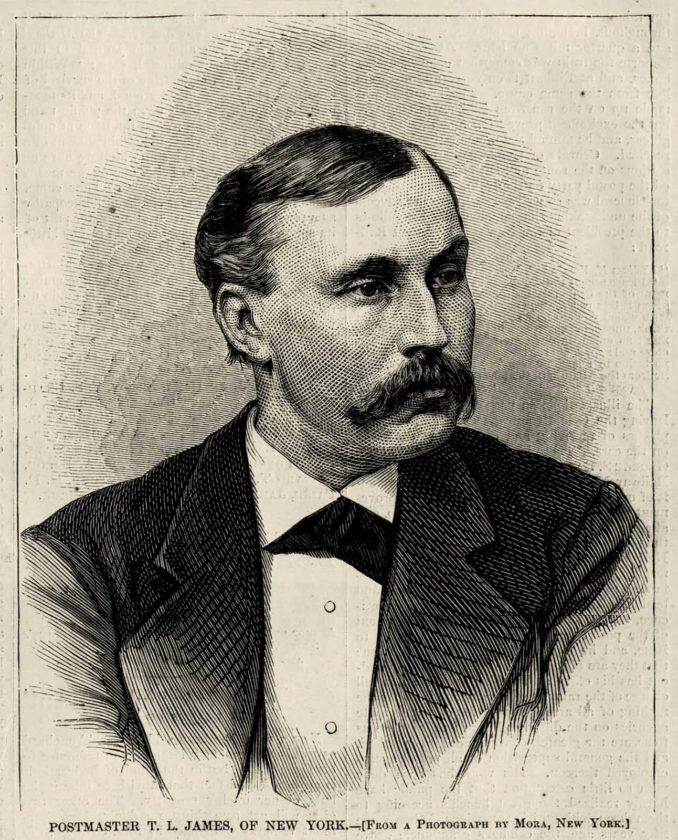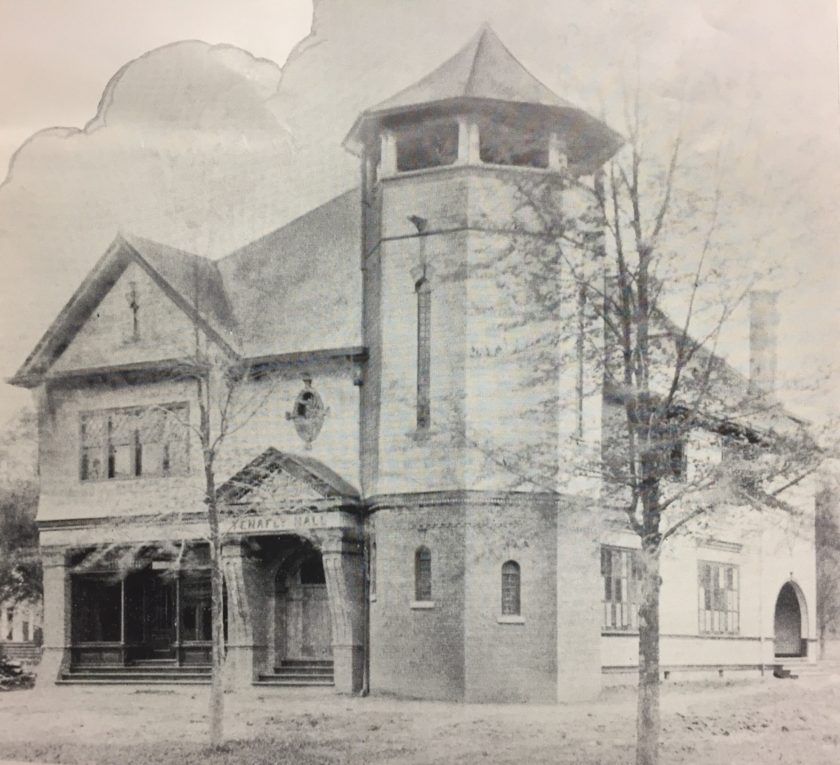
TENAFLY, N.J.—“The city of Tenafly, N.J., has elected a reform mayor,” reported The New York Times in 1895. “It is not a large city. The total poll was 276, which is about that of a good-sized election division of Philadelphia. But it has got a very large mayor, in the person of ex-Postmaster General Thomas L. James.”
Tenafly, which celebrated its 125th anniversary earlier this year, incorporated as a borough in January of 1894. In those days, the mayoralty was a one-year appointment. The new borough’s inaugural mayor had been Henry B. Palmer.
In 1895, Tenafly’s couple hundred voters (men only in those days) went back to the polls. The main issue dividing the parties was that the Republicans believed Tenafly could be run for $4,000 per year, but the Democrats put the figure closer to $6,500. The GOP arose victorious, and their candidate, Thomas Lemuel James, was set to become Tenafly’s second mayor.
However, James wasn’t just anybody. He was a former postmaster general, having served in 1881 in President James Garfield’s cabinet.

The newspapers had a field day with the story of such a prominent figure leading a little town like Tenafly.
“The idea of a man who has been postmaster general accepting the direction of a country village whose whole expenditures are but a few thousands dollars a year, is not without its humorous aspects,” wrote The New York Times, which asserted that James would have made a good mayor for New York. “Instead of laughing at Tenafly and its mayor, we are rather disposed to congratulate them both. The only reason for regret is that so large a man should be wasted in so small an office.”
James had greatly distinguished himself in his time as postmaster general. He entered Garfield’s cabinet in March of 1881, and in just a 10-month term he had enacted lasting reforms. He found that the postal service was operating at a $2 million deficit. Reductions in the Star Routes (a type of postal delivery in which private carriers were hired to deliver mail to remote regions) amounting to $1.7 million, as well as in steamboat service amounting to $300,000 helped clear the debt. Along with the Department of Justice, James went on a charge to wipe out abuse and fraud within the department, thereby making it financially solvent.
In September of 1881 President Garfield was assassinated. With a changeover in the cabinet, James declined to remain in the position. He left politics and in 1882 became president of the Lincoln National Bank of New York. He moved to Tenafly in 1885, where he had a beautiful estate on Bliss Avenue.
Many newspapers were quick to note that while Tenafly was a small village, it was home to many men of influence, like James himself. Indeed, in the years since the railroad had arrived, the village had become home to some of New York City’s heavy-hitters of the financial sector, who kept either year-round or summer residences in Tenafly and commuted by rail and ferry.
The Sunday News of Wilkes-Barre described Tenafly as “a comparatively unimportant town in New Jersey…having a voting population of but a few hundred persons. Yet,” it continued, “these few hundred persons are among the heaviest financial magnates in New York, which makes the matter of more importance.”
As mayor of Tenafly, James spoke out in favor of setting aside the New Jersey Palisades as a park, at a time when quarries were blasting away at the cliff face.
In 1911, James was still living in Tenafly when he was married for the fourth time, having outlived the first three of his wives. He was 80 years old, and his bride was 36. It was not the first time he had married a younger woman. When he was 73 he had married his second wife, who was 30.

